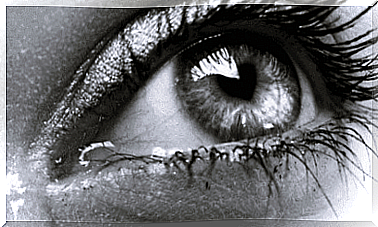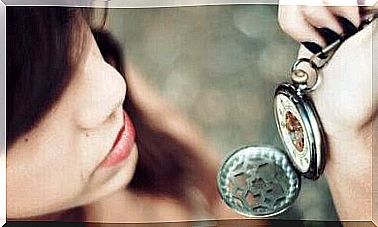Antidepressant Diet: Eat Properly, Feel Better
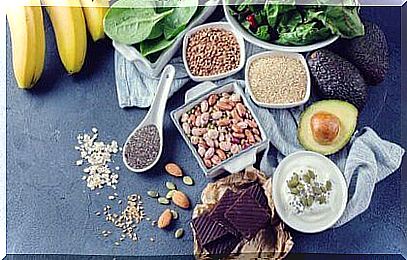
An antidepressant diet can not change psychological disorders on its own. However, food and nutrients can play an important role in a multi-disciplinary approach to the treatment of depression. Something as simple as eating anti-inflammatory foods rich in antioxidants and vitamin C can improve both your mood and well-being.
Mark Twain believed that the only way to stay healthy was to eat food you did not want to eat, drink things you did not want to drink and do things you did not want to do. And one can easily get the impression that feeling good and having an inner balance is not compatible with culinary pleasures. Nutritional physiologists and psychologists, on the other hand, could not disagree more.
We eat too poorly
The simple truth is that we eat poorly. Our interest in food is surprisingly similar to that of an eight-year-old child. We tend to prefer foods that provide quick sugar or salt kick. In addition, another factor makes our diet even worse: the poor quality of our crops. The soil lacks sufficient organic material and the mass production of fruits and vegetables has a negative impact on their nutritional value.
An inadequate diet affects your well-being. It is therefore important that you, as a supplement to any psychological treatment or medication, follow a proper diet. The long-term results will be significant.

Can an antidepressant diet really change anything?
In 2017, several universities in Australia and New Zealand conducted a number of studies in collaboration with various hospitals. The results were published in the medical journal “BMC Medicine”. The aim was to find out whether following a certain diet could have any effect on patients diagnosed with depression. The results were positive and patients began to notice the results of their dietary changes after about 12 weeks.
The relationship between diet and mood is a new area in what is called “nutritional psychiatry”. Scientific research shows that what we eat has a significant impact on our emotions and our well-being. In other words, it’s well worth caring about what we put in our mouths. Because of this, you should note the following guidelines.
1. Whole grains
Whole grains are a fabulous source of vitamins, minerals, fiber, antioxidants and phytochemicals. Foods such as brown rice, oats or buckwheat also offer a good deal of tryptophan. Tryptophan is an essential amino acid that contributes to the production of the happiness and well-being hormone serotonin.
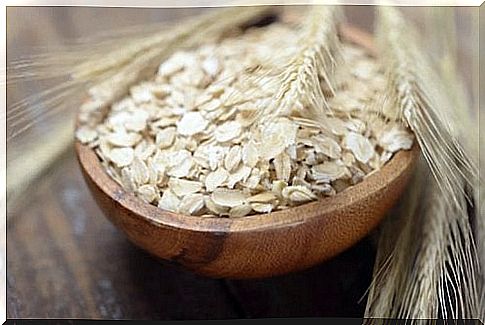
2. Green vegetables
Green vegetables are an indispensable part of an antidepressant diet. When you think of these vegetables, you probably think of spinach, but there are several other options. To get your dose of these important vegetables, you can also eat broccoli, cabbage and watercress.
These vegetables are rich in nutrients. They are especially interesting for people struggling with depression as they are rich in antioxidants, folic acid and vitamins B and C which help reduce stress and anxiety.
3. Oily fish
In the studies conducted in Australia and New Zealand, participants ate oily fish between two and three times a week. You will find a number of alternatives to fatty fish in the grocery store. You can choose between salmon, tuna, trout, herring and mackerel. The main benefit for people with depression is the high levels of omega-3 fatty acids found in these fish.
This type of polyunsaturated fatty acid is an exceptionally good protector of our neurons.
4. Chicken and turkey
Red meat is not part of an antidepressant diet. Instead, poultry is the recommended choice. Chicken and turkey are both good options. They are rich in proteins and contain an amino acid called tyrosine which facilitates increased amounts of dopamine in the brain. Both chicken and turkey taste excellent grilled with lemon and olive oil. The bonus is that you will also feel excellent.
5. Beta-carotene
Carrots, tomatoes and pumpkins… Vegetables that have a red or orange color contain beta-carotene, an important nutrient that the body converts into a precursor to vitamin A. Thanks to beta-carotene, your body will be more balanced, have better blood circulation and be better equipped to fight free radicals. In addition, eating oranges and red vegetables will improve your mood and may even relieve headaches.

6. Nuts
Nuts are an invaluable part of an antidepressant diet. You should eat between 4-6 nuts each morning as part of your breakfast. In general, nuts and seeds are very beneficial in counteracting mood swings. They contain omega 3, vitamins such as vitamin E, as well as antioxidants and zinc. Nuts and seeds are powerful protectors of our neurons and will improve your well-being.
7. Probiotics
Kefir is the best probiotic food you can come across. It is low in lactose and strengthens and promotes a good intestinal flora. Remember that most of the serotonin you have in your body is produced in the stomach, not in the brain. It is therefore important to have a strong and good intestinal flora that facilitates the production of serotonin.
The intestinal flora contributes to a good digestion and to your body absorbing nutrients properly. But that’s not all it does. The activity in your stomach also has an important impact on your cognitive, emotional and sensory functions. A little kefir for breakfast can work wonders in the long run.
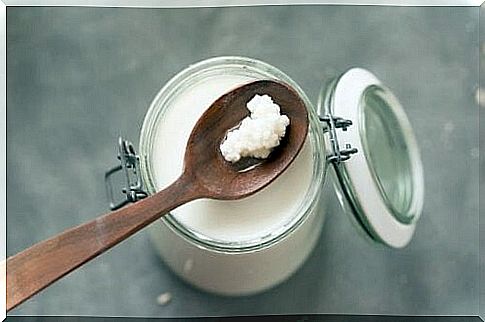
If you are struggling with depression (or other psychological problems) then a healthy and varied diet will not make your problems go away. However , it will promote the best conditions for healing and treatment to be as effective as possible. It will make you feel better and more serotonin and dopamine available to your brain.
Eating healthy will always be worth the effort.





